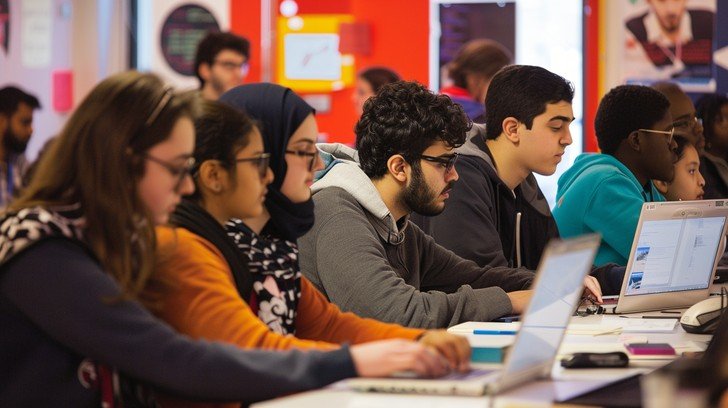For students who are determined to excel academically, finding the right work-play balance can be an elusive goal. Striking a harmony between school commitments and leisure activities is not only key to maintaining mental health but also to ensuring long-term success in one’s educational journey. In our constantly connected world, the line between work and play often becomes blurred, making it even more essential for students to practice disciplined time management. Keep reading to discover practical strategies for achieving a fulfilling student life without compromising on your academic goals.
Understanding the Importance of Work-Play Balance for Students
The work-play balance is crucial for student life, as it allows students to balance academic work with leisure activities. This balance helps in assimilating new information, fostering creativity, and preventing academic fatigue. Engaging in leisure activities, such as sports or creative endeavors, can develop a well-rounded set of skills, teaching teamwork, time management, and personal growth.
Proper planning is essential for achieving this balance, recognizing when to switch gears from textbooks to hobbies or from the library to social spaces. This can enhance focus during study sessions and increase engagement during leisurely pursuits. Many students struggle to manage their time effectively, leading to an imbalance that can lead to high stress levels and decreased overall well-being. Implementing this balance requires actionable strategies.
Incorporating Leisure and Play Without Compromising Studies
Students who sacrifice leisure for their studies may inadvertently hurt their academic performance. Leisure moments allow the brain to process information subconsciously, making recreational activities essential for mental health and a positive attitude toward studying. Choosing rejuvenating activities, like playing a musical instrument or enjoying social casinos with real money, is vital for relaxation and should be planned, not seen as guilty pleasures.
Balancing playtime with study is crucial. Setting boundaries for leisure activities helps prevent overindulgence, ensuring that students enjoy downtime while staying focused on academic goals. Spontaneous moments of play, such as impromptu gatherings, can offer refreshing breaks from studying without compromising responsibilities. Embracing this flexibility can lead to a healthier, more productive study routine.
Strategies to Prioritize and Manage Academic Commitments
To manage academic responsibilities effectively, students should establish clear priorities and create a dedicated study schedule. This involves breaking down larger assignments into smaller, manageable tasks, fostering a sense of accomplishment. Consistency in this schedule can reduce stress and last-minute cramming.
Students should also learn to say ‘no’ to social invitations or extracurricular commitments when deadlines are approaching. Prioritization is a valuable life lesson, and knowing one’s limits is crucial for wise academic responsibilities. Besides planning and prioritization, sourcing efficient study tools and resources, such as study groups and online platforms, can also help students understand complex material and save time. This approach helps maintain balance and reduces frustrations.
Practical Time Management for a Balanced Student Lifestyle
Achieving a work-play balance hinges on effective time management. Students should first assess how they currently spend their time, identifying areas where they might be wasting hours, like excessive social media use. By using planners or digital calendars, they can organize their schedules more efficiently, ensuring dedicated time for both studying and leisure activities. Setting aside specific periods for focused study can enhance productivity, allowing for relaxation later in the day.
For those pursuing an associate’s degree in early childhood education or other demanding programs, disciplined time management is crucial. Building flexibility into study plans helps accommodate unexpected events and workload changes. Regular planning sessions empower students to adjust their schedules as needed, ensuring a balance that promotes both academic success and personal well-being.
Navigating Stress and Burnout Prevention Through Balanced Living
Stress and burnout are becoming more prevalent in educational institutions, necessitating a balanced approach. Early signs of stress can be identified and addressed through healthy habits like maintaining a healthy diet, physical activity, and adequate sleep. Support systems, such as open communication with peers, family, or mentors, and university support services, can also help manage stress.
Mindfulness and reflection practices, such as meditation, journaling, and introspection, can help students maintain a clear perspective on their priorities and values. Recognizing the importance of self-care, such as taking a mental health day or enjoying leisure time without guilt, is crucial for long-term academic success and personal well-being. This self-care ensures optimal performance in all areas of life.
Overall, understanding and executing a work-play balance is not only beneficial for students’ academic performance but is critical for their overall well-being. By integrating effective strategies for academic commitments, engaging in selective leisure, and managing time fruitfully, students can cultivate a lifestyle that promotes success and happiness. This guide provides the tools for students to navigate their educational journey with poise and prosperity.

